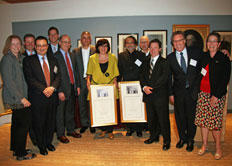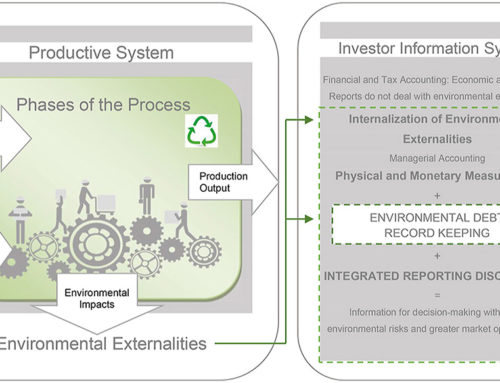First published in the Guardian on June 20th, 2014
Throughout the 20th century, millions of people banded together in nonviolent revolutions across the globe to secure their freedom. From India to Czechoslovakia, South Africa to Poland, they declared their right to self-determination. Why, in the 21st century, are so few of us ready to fight together to secure our right to clean air and water?
To wake us from our fossil-fueled dreams, we need nothing less than radical cooperation.
Given the scope and importance of the conflict, it’s notable that many of the most poignant voices calling for a more holistic view of climate change are in fact battle-tested veterans of war. In a new report,National Security and the Accelerating Risks of Climate Change, an all-star array of retired US military brass weighs in, writing that “The potential security ramifications of global climate change should be serving as catalysts for cooperation and change. Instead, climate change impacts are already accelerating instability in vulnerable areas of the world and are serving as catalysts for conflict.”
What moves people to cooperative action? Environmental activists and scientists often ask how they can get Americans to care about climate change. And, on the other end of the spectrum, many business people are trying to encourage both their customers and Wall Street to work with them on solutions.
Meanwhile, those of us fighting to stave off climate chaos are working to send a palatable message, telling one another that we cannot scare people to death and that alarmism is ineffective. But watch The Weather Channel. Read the business news. Follow the agricultural commodity markets or your region’s farming news. Climate change’s high impact traumas and costs on people, planet and profits are already alarming. Scratch below the surface of anyone of any political stripe and the feeling is the same – something is not right.
Change is clearly called for, but our passive acceptance of extreme weather as the new normal has discouraged far too many of us from behaving outside of cultural norms. I recently spoke at a conference on National Security and Climate Change where government, military, academia, and civil society representatives explained the horrifying effects of climate change on global food, water and energy supplies. When I asked several presenters what they were doing to change the direction of their formidable institutions, the reply came, “Oh I can’t do anything radical”. But you just said “It’s an emergency”, I found myself thinking. Unfortunately, emergency or no, the cultures in these entrenched institutions accept inertia over action.
Instead of facing the music, most politicians and business people threaten consumers and citizens with dangerous economic repercussions unless we accelerate the extraction and exploitation of cheap American fossil fuels. Republican representative Bill Johnson of Ohio (Energy and Commerce Committee) pushes for the Keystone Pipeline and argues that the freedom to frack and drill anywhere in the US is the cornerstone of smart energy and economic policy. Meanwhile, even though it has an extremely low earthquake profile, his district had a recent quake linked by state geologists to oil and gas drilling. This connection between drilling and earthquakes is now beingmapped by the US Geological Survey.
Domestic oil and gas sound cheap until we add up the bills. Oil and gas extraction, transportation and combustion drive up the cost of maintaining emergency services, healthcare, infrastructure, insurance, water systems, habitats and agriculture. They drive up mortality and drive regional economies into the ground. These costs comprise the carbon tax that we are already paying. Those who resist a radical change in our energy infrastructure are willfully and wittingly leaving more of these bills to their kids.
There is no way to sugarcoat this story. It will cost real money to build a 21st century safe energy infrastructure. It will cost exponentially more money and devastation if we do not.
David Crane, CEO of NRG (one of the nations’ largest energy companies), recently wrote a shareholder letter that addresses his personal and corporate responsibility:
The day is coming when our children sit us down in our dotage, look us straight in the eye, with an acute sense of betrayal and disappointment in theirs, and whisper to us, “You knew… and you didn’t do anything about it. Why?” And for a long time, our string of excuses has run something like this: “We didn’t have the technology … it would have been ruinously expensive … the government didn’t make us do it …”
But now we have the technology – actually, the suite of technologies – and they are safe, reliable and affordable as well as sustainable … The time for action is now; we have run out of time for more excuses.
If the US president were to ask Americans to lower our energy usage by 20% in the next year, I am certain we could do it. Courageous cooperators are legion. They come in pin-striped suits, overalls, lab coats, nurse’s uniforms, skinny jeans, and aprons. They are found in classrooms, garage labs, farms, and even occasionally government offices. They are everywhere.
The world’s largest cities have already banded together through theC40 Cities Climate Leadership Group. But in the US, our leaders have not asked us to step up, nor is there federal coordination of wide-ranging efforts.
In 1989, 46 countries brought the Montreal Protocol into force (now ratified by 197 nations), pledging to eliminate CFCs that were burning a hole in the ozone. At the time, industry fought against that radical cooperation with much the same language that is being used today. The CEO of chemical giant Pennwalt talked of “economic chaos” if CFCs were phased out, and DuPont warned that “entire industries could fold”. None of this ensued. And if there were no Montreal Protocol, CFCs would have caused utter devastation.
Climate change is a similarly dire threat and the clock is ticking. Our last chance for a global deal – the UN Framework on Climate Change’s meeting in Paris in 2015 – is drawing near. The world’s scientists have weighed in clearly, stating that greenhouse gas emissions need to peak this decade, otherwise the stability of our climate and weather systems are in dire jeopardy.
Only a global treaty on climate that incentivizes a decarbonized economy can chart this course. Voluntary and good corporate actions will simply not suffice to reach the fundamental changes necessary. This climate treaty will only pass if the peoples and businesses of the world assure their governments that they support it. This is the radical cooperation needed to transition the world’s economy to a low-carbon future.





